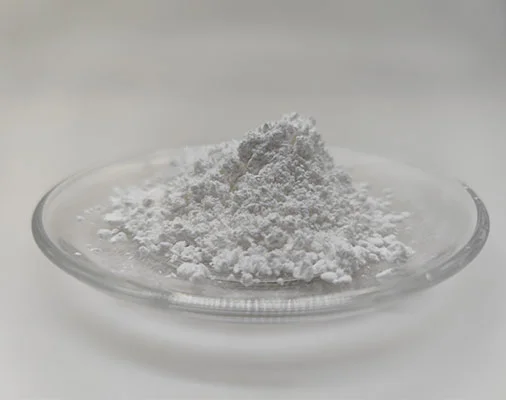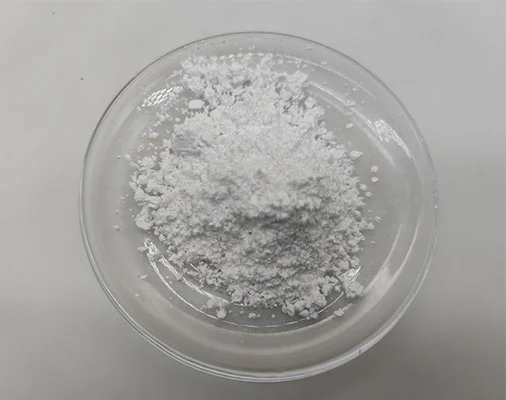L-tyrosine, a non-essential amino acid, plays a pivotal role in several biological processes, including protein synthesis, neurotransmitter production, and hormone regulation. While it is naturally synthesized from another amino acid, phenylalanine, its supplemental form, L-tyrosine powder, has gained attention for its potential benefits, especially in growth and development in mammals. In this blog post, Viablife will share the biochemical pathways, physiological roles, and the implications of L-tyrosine powder on mammalian growth.
1. The Biochemical Foundation of L-Tyrosine
L-tyrosine (C9H11NO3) is classified as a polar, aromatic amino acid, distinguished by its hydroxyl (-OH) group attached to the benzene ring. It is synthesized endogenously in the liver through the hydroxylation of phenylalanine, a reaction catalyzed by the enzyme phenylalanine hydroxylase. The significance of L-tyrosine transcends its role as a building block for proteins; it is also a precursor for various biologically important molecules:
- Neurotransmitters: L-tyrosine is crucial in the synthesis of dopamine, norepinephrine, and epinephrine. These catecholamines are integral to mood regulation, cognitive function, and the stress response.
- Hormones: It contributes to the production of thyroid hormones (thyroxine and triiodothyronine) and melanin, which is essential for pigmentation in skin, hair, and eyes.

2. Growth Promotion Mechanisms
2.1 Protein Synthesis
L-tyrosine is directly involved in protein synthesis, which is essential for growth. Proteins serve as the fundamental building blocks of cells and tissues, and adequate availability of amino acids like L-tyrosine is crucial for:
- Cellular Replication: The growth of tissues, particularly during developmental stages, requires rapid cell division and expansion, which necessitate high levels of protein synthesis.
- Muscle Development: In mammals, particularly in young and growing individuals, L-tyrosine contributes to the synthesis of muscle proteins, facilitating growth and recovery from exercise-induced stress.
2.2 Neurotransmitter Regulation
The impact of L-tyrosine on neurotransmitter synthesis is vital for growth, particularly in the brain:
- Cognitive Development: Adequate levels of catecholamines are linked to enhanced cognitive function, which is critical for learning and adaptation during growth phases.
- Stress Response: Stress can adversely affect growth and development. L-tyrosine supplementation has been shown to mitigate the negative effects of stress by replenishing neurotransmitter levels, thereby promoting a more favorable growth environment.
2.3 Hormonal Balance
The synthesis of thyroid hormones from L-tyrosine is essential for growth and metabolic regulation:
- Thyroid Hormones: These hormones are fundamental in regulating metabolism, growth, and development. They influence the basal metabolic rate and are crucial for the development of the nervous system and skeletal system.
- Growth Hormone Release: L-tyrosine may also play a role in stimulating the release of growth hormone (GH) from the pituitary gland, further promoting growth and development.

3. L-Tyrosine Powder as a Supplement
3.1 Bioavailability and Absorption
L-tyrosine powder is often used as a dietary supplement due to its high bioavailability. Upon ingestion, it is rapidly absorbed in the gastrointestinal tract, entering the bloodstream and subsequently being taken up by tissues. Factors that influence the absorption rate include:
- Presence of Other Nutrients: Co-ingestion with carbohydrates can enhance the absorption of L-tyrosine by stimulating insulin release, which aids amino acid transport into cells.
- Formulation: L-tyrosine powder formulations (e.g., free-form vs. complexed with other compounds) can affect how well it is absorbed and utilized by the body.
3.2 Dosage Considerations
While optimal dosages may vary based on individual needs and health conditions, typical supplemental doses range from 500 mg to 2,000 mg per day. It’s essential to consult with healthcare professionals before starting supplementation, especially in growing mammals such as children or young animals, to avoid potential side effects associated with excessive amino acid intake.
Conclusion
L-tyrosine powder plays a multifaceted role in promoting growth in mammals through its involvement in protein synthesis, neurotransmitter production, and hormonal regulation. Its bioavailability and impact on various physiological processes make it a valuable supplement, particularly in contexts of stress, developmental growth, and physical performance.
Why Choose Viablife's L-Tyrosine?
Viablife’s L-Tyrosine is produced using advanced fermentation technology, resulting in a more natural product with superior purity and high quality. This innovative manufacturing process enhances the bioavailability and effectiveness of L-Tyrosine, making it an ideal choice for those seeking optimal growth benefits in mammals. With Viablife, you can trust the quality and efficacy of your L-Tyrosine supplement to support healthier growth and development.
Related products:
1.Ceramide





 Leave a Message
Leave a Message